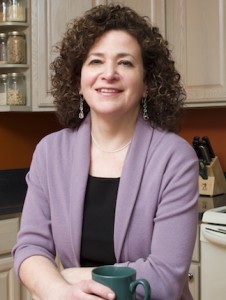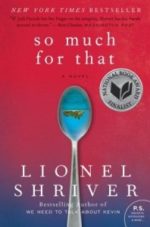 Today I welcome Nava Atlas! Nava is the author of The Literary Ladies’ Guide to the Writing Life, an exploration of how twelve celebrated women authors “expressed their views on the subjects of importance to every writer– from carving out time to write to conquering their inner demons to developing a ‘voice’ to balancing the demands of family life with the need to write.” Through the diaries, letters, memoirs, and interviews of Louisa May Alcott, Jane Austen, Charlotte Brontë, Willa Cather, Edna Ferber, Madeleine L’Engle, L.M. Montgomery, Anaïs Nin, George Sand, Harriet Beecher Stowe, Edith Wharton, and Virginia Woolf — all writers “who left a fair amount of writing on various aspects of their lives as writers” — as well as her own commentary, Nava proves that the lives and lessons of those classic women writers resonate with contemporary female writers. The book is a stunningly beautiful compilation, featuring photographs and illustrations in chapters focused upon topics including Becoming a Writer, Developing a Voice, Tools of the Trade, Conquering Inner Demons, and Rejection and Acceptance.
Today I welcome Nava Atlas! Nava is the author of The Literary Ladies’ Guide to the Writing Life, an exploration of how twelve celebrated women authors “expressed their views on the subjects of importance to every writer– from carving out time to write to conquering their inner demons to developing a ‘voice’ to balancing the demands of family life with the need to write.” Through the diaries, letters, memoirs, and interviews of Louisa May Alcott, Jane Austen, Charlotte Brontë, Willa Cather, Edna Ferber, Madeleine L’Engle, L.M. Montgomery, Anaïs Nin, George Sand, Harriet Beecher Stowe, Edith Wharton, and Virginia Woolf — all writers “who left a fair amount of writing on various aspects of their lives as writers” — as well as her own commentary, Nava proves that the lives and lessons of those classic women writers resonate with contemporary female writers. The book is a stunningly beautiful compilation, featuring photographs and illustrations in chapters focused upon topics including Becoming a Writer, Developing a Voice, Tools of the Trade, Conquering Inner Demons, and Rejection and Acceptance.
About the concept for the book, Nava says:
I’ve long been fascinated with the creative process, especially for women, who have historically had to struggle a great deal to have a presence in the arts. Not surprisingly, women writers are more likely to muse on all aspects of the creative process. At first I was just going to collect inspirational quotes and short passages to put together into a simple book, but as I delved more into their personal narratives, the project grew larger in scope, to include longer narratives from their letters, journals, autobiographies, and interviews. I was then compelled to comment on these musings with my own, weaving in thoughts on how the experiences of classic women writers past still resonate with women who write today.
Why did she choose the twelve writers included the book? According to Nava, “each represents a certain theme or struggle inherent to the writing life.”
Writing is Hard (Even for Accomplished Authors) — But That’s No Reason to Give Up!
by
Nava Atlas
Once in a while you’ll hear of a writer or composer who claims that their brilliant output is the result of some spiritual dictation — their pen merely records what they see or hear from a source unknown. I hate those kind of stories. They make me feel morose about my work habits, which, though not undisciplined, often feel laborious — definitely not divinely inspired. I relate more to Dorothy Parker’s take on writing: “ I can’t write five words but that I change seven.”
It used to be that when the going got tough on a writing project, I took it as a sign that I wasn’t up to the task. When the inner critic started to tease, “Who do you think you are, trying to write X, Y, and Z?” I lacked the courage to tell the imaginary nay-sayer to get lost. So the easy thing to do was to give up.
Then I had the privilege to meet — metaphorically at least — classic women authors of the past that made it eminently clear that writing can, and usually does, indeed feel difficult and lonely. This, in turn, fuels the self-doubt always bubbling just beneath the surface of a writer’s consciousness. Of the twelve authors I focused on in The Literary Ladies’ Guide to the Writing Life, not one made the craft seem easy. Well, maybe Edna Ferber made it look easy. Though her work hasn’t had the lasting impact of some of the others (Austen, Alcott, Brontë, Cather, Woolf, etc.), in her time, she was hugely successful, as her large body of novels became major movies or Broadway shows. Yet even as raked in the big bucks. she proclaimed that “Writing is agony.”
Margaret Mitchell spoke for many (if not most) writers when she described her agonies in writing Gone with the Wind: “I had believed that writers, writers who really knew how to write, had no difficulty at all in writing. I thought only luckless beginners like myself had to rewrite endlessly, tear up and throw away whole chapters . . . and I thought I was the only writer in the world who went through such goings on.” Perhaps if she’d peered into the diaries and letters of other women authors, she may not have felt so hapless and isolated. Here’s a sampling:
- Charlotte Brontë: “With the heavy suspicion on my mind that all may not be right, I yet feel forced to put up with the inevitably wrong.” (1849)
- George Sand: As for my frenzy for work, I will compare it to an attack of Herpes. I scratch myself while I cry. It is both a pleasure and a torture at the same time.” (1866)
- Anaïs Nin: “One day I write poems and essays, and the next I tear and burn them.” (1921)
- Virginia Woolf: “I wonder if anyone has ever suffered so much from a book as I have from The Years.” (1936)
And ad infinitum. Yet if you read onward in those very passages, their author often vows not to give up. Even after bemoaning the agony of the writing process, Woolf almost always segued to a hopeful note: “Determination not to give in, and the sense of an impending shape keep one at it more than anything.” A few sentences on, after comparing writing to a sexually transmitted disease, Sand concludes, “It seems to me in my moments of vanity that I am beginning to catch a glimpse of what a novel ought to be.”
What if these authors and so many others like them had thrown up their hands when writing felt like torment? Think of all the literary treasures the world would be deprived of. Next time you’re working on something you know is intrinsically good, but which isn’t going well, bang your head against the desk if you must, like your literary foremothers often did. Then steel yourself, and go on with the task at hand. I know I’ll be doing just that when I’m being driven crazy by the graphic novel I plan to produce in the near future.
It was the youthful Anaïs Nin who had the best remedy against the agonies of writing. She concluded in the same passage where she “tears and burns” her work: “Nevertheless, I am resolved to write, write, and write. Nothing can turn me away from a path I have definitely set myself to follow.”
Meet Nava

She has also published two books of humor, Expect the Unexpected When You’re Expecting! (A parody), and Secret Recipes for the Modern Wife.
Nava is also a visual artist, specializing in limited edition artist’s books and text-driven objects and installations. Her work has been shown nationally in museums, galleries, and alternative art spaces. Her limited edition books are housed in numerous collections of artist’s books, including the special collections libraries of The Museum of Modern Art (New York City), National Museum of Women in the Arts (Washington, DC), National Library at the Victoria and Albert Museum (London), Brooklyn Museum, Boston Museum of Fine Arts, and dozens of academic collections. To learn more about Nava’s work, visit Veg Kitchen or Nava Atlas, or follow her on Facebook or Twitter.



4 Comments
This interview was timely for me. I have begun writing, the words at first flowed faster than I could pen them but then, nothing. I know what I want from the novel but it’s the middle that I am struggling with. I look forward to your review of this book and will definitely enter to win a copy.
I really like your article. I love writing too. I write to serve women on my blog Inspirational Women http://www.theinspirationalwomen.com You’re certainly an inspirational woman.
It is getting started that is constantly my problem. Part of it is like birthing a baby. I ask myself, do I really want to do that right now? Often I take the easier way out. There are times when I am jumping with excitement . How to schedule that?
Carol Wong
Thank you so much for this post, Nava! I always want to give up. I am defeated by my thoughts before I even start. It’s nice to know I’m not alone. I think your book will really help me!